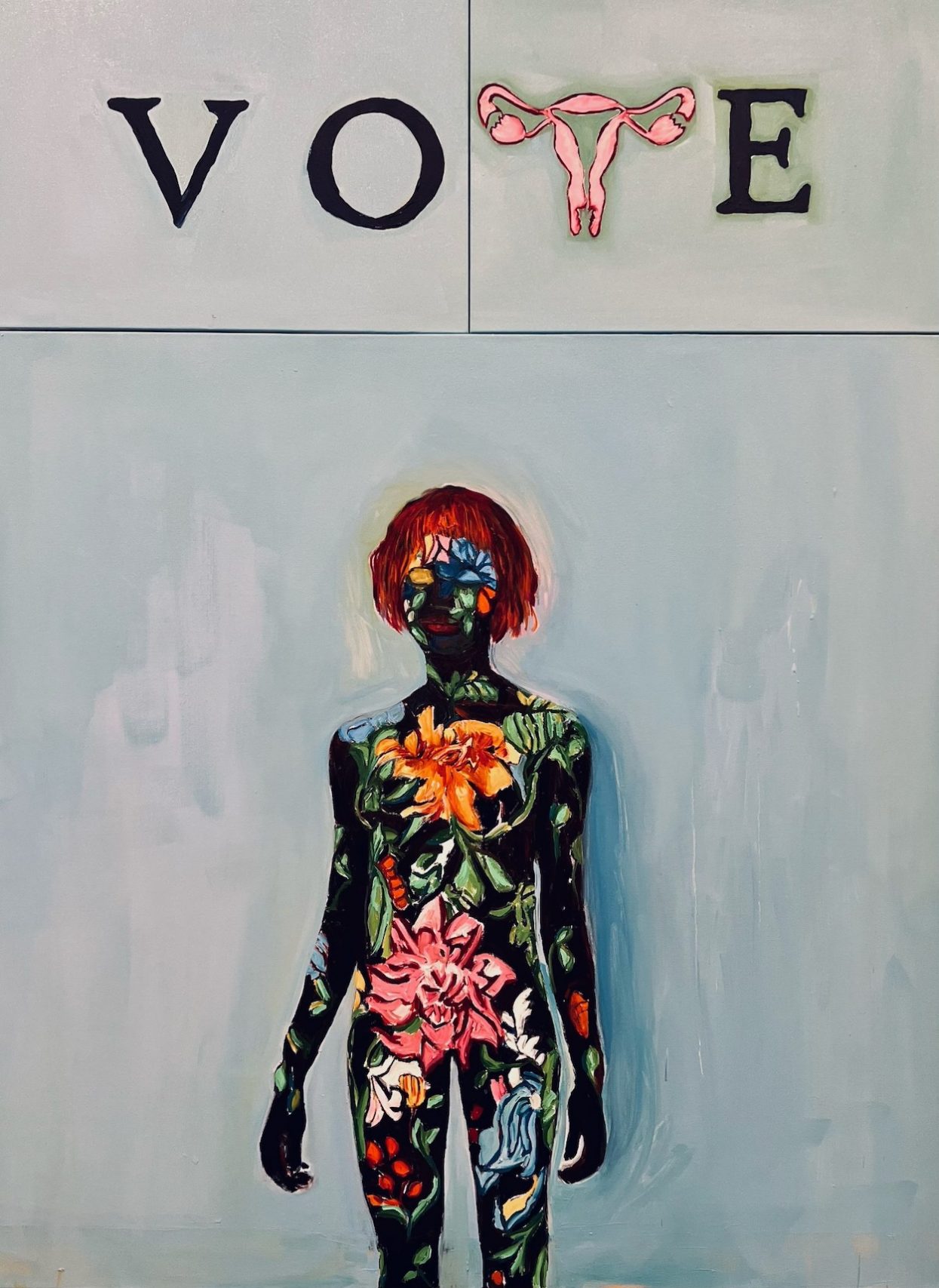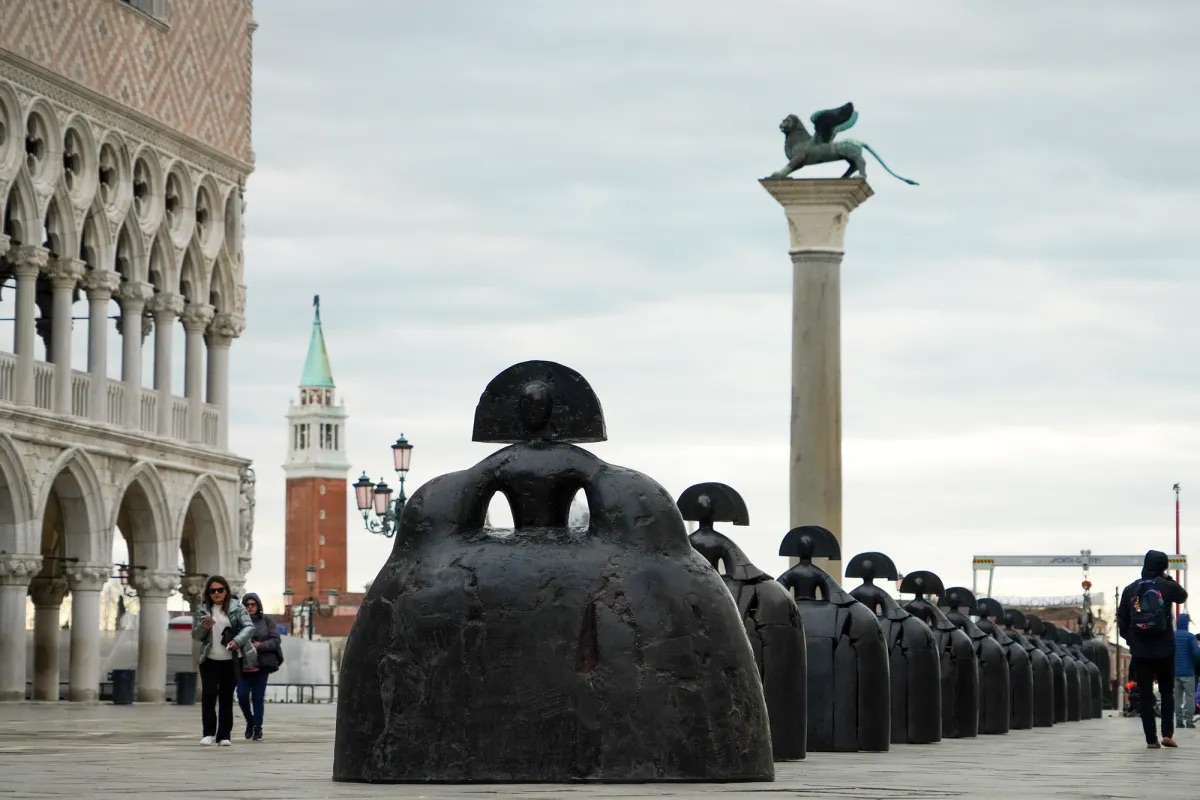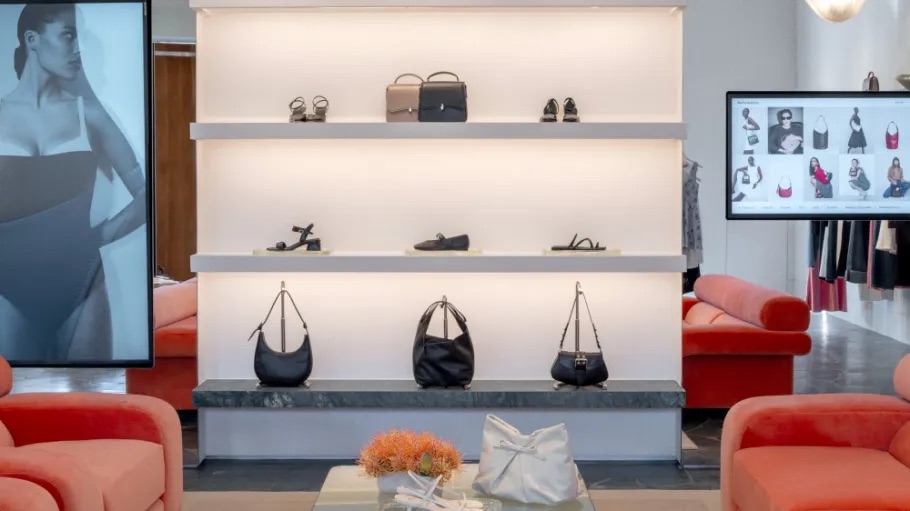The Design Dispatch offers expertly written and essential news from the design world crafted by our dedicated team. Think of it as your cheat sheet for the day in design delivered to your inbox before you’ve had your coffee. Subscribe now.
A coalition of artists, spearheaded by advocacy group People For The American Way (PFAW), has embarked on the Artist For Democracy 2024 campaign, which is leveraging art to rally against former President Donald Trump ahead of the 2024 presidential election. Led by prominent figures like Shepard Fairey and Carrie Mae Weems, the initiative aims to disseminate political messages through mediums such as billboards, merchandise, and digital ads, with a focus on battleground states, while reframing concepts like “patriotism” and the “American Way.” Alyson Shotz and Beverly McIver have contributed works to the campaign, addressing issues like civil rights and reproductive rights and underscoring the urgency of voter mobilization.
The organization, founded by the late television producer Norman Lear, aims to emphasize the importance of civic engagement and draw attention to the legacy of Lear’s socially conscious shows. Participating artists hope to use their platforms to drive change, with McIver’s piece, Black Beauty, symbolizing the significance of women’s voting rights by depicting a Black woman covered in flowers and the word “vote” above her head, with the “t” stylized as a woman’s uterus. “Political commentary is frowned upon because art is portrayed as an escapist luxury for rich people who don’t want to think about injustice,” Shepard Fairey, most famous for his Hope portrait for former President Barack Obama, told Artnet News. “It doesn’t need to be that way.”
At the 60th Venice Biennale, visitors will find a striking installation in St Mark’s Square, consisting of 13 bronze sculptures by Spanish artist Manolo Valdés, inspired by Velázquez’s painting Las Meninas a San Marco. The project is facing criticism from local heritage group Italia Nostra-Venezia, denouncing it as an imposition on Venice’s cultural identity, while the display is supported by various sponsors and will culminate in the donation of one sculpture to the city.
Fortnight Institute, a renowned New York gallery known for nurturing emerging artists, shocked its fans followers with a social media announcement of its closure. Founders Fabiola Alondra and Jane Harmon expressed gratitude for the support during its eight-year journey, marked by influential exhibitions and propelling the careers of artists like Somaya Critchlow and Chris Oh.
Stefano Boeri Architetti has unveiled plans for the Museum of Technology in Xi’an, China, which features an innovative facade with undulating forms and green rooftop terraces. Positioned as a catalyst for urban regeneration, the museum will integrate multimedia experiences and digital exhibits and is envisioned as a hub for tech innovation and cultural exchange in the city.
The German Football Association will redesign the number “4” on national jerseys due to its resemblance to a logo associated with Nazi paramilitary units, following social media criticism and concerns over the symbol’s connotations. Adidas, the official uniform supplier, has ceased the option to customize German team jerseys with the number 4 amid widespread recognition of the resemblance to the controversial SS insignia, as the DFB prepares for the 2024 UEFA European Championship hosted by Germany.
Reformation’s Beverly Hills store is packed with restored vintage furniture.
Stick enthusiasts are sharing their enthusiasm on a viral Instagram account.
Efforts are underway to preserve the soon-to-be-extinct Romeyka language.
Presidents might not be wearing them, but neckties are making a comeback.



